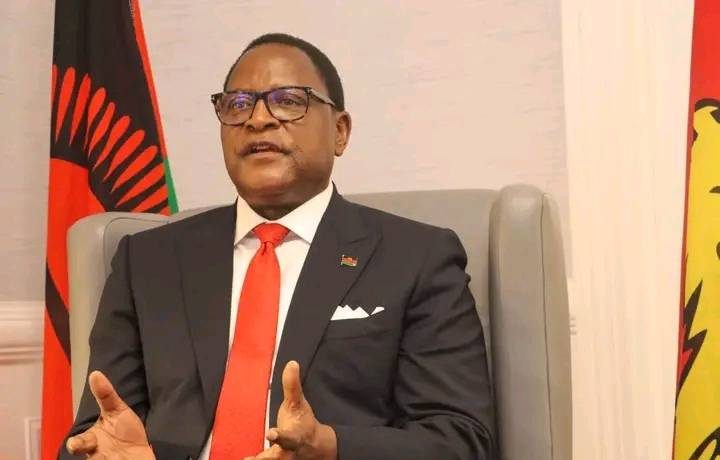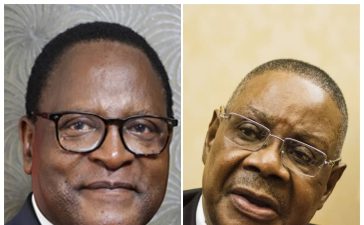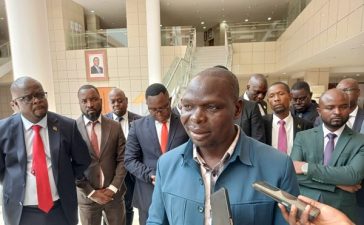The newly-reconfigured Cabinet is scheduled for swearing in tomorrow in Lilongwe. President Dr. Lazarus McCarthy Chakwera reconfigured his cabinet on 1st January this year, minting a purpose-driven cabinet aimed at maximizing public service delivery in the wake of disaster-induced socio-economic challenges in the country.
For example, the Public Sector Reforms Unit which was tucked in the Office of the Vice President has been accorded full ministerial portfolio designated as Ministry of State and Service Delivery to maximum public service delivery objectives. Accordingly, the President shifted the State Vice President, Dr. Michael Biswick Usi, from the Ministry of Natural Resources and Climate Change to become a Minister of the new ministry.
President Chakwera has fashioned the Ministry of State and Service Delivery in furtherance of the aspirations of the Malawi National Public Sector Reforms Policy which, among others, seeks to graduate generations of public sector reforms which have been implemented since independence in response to recommendations made through a number of Commissions of Enquiry and studies, to a ministerial portfolio with full institutional capacity to catalyze execution of objectives of a functional public service delivery.
According to Malawi National Public Sector Reforms Policy, an efficient and effective public sector is a bedrock for sustainable development, stating that “a robust public service provides a sufficient capacity necessary to retain a competent workforce and achieve national development outcomes. This commitment enjoins government and all stakeholders to pursue and implement concrete and results oriented reforms that will revitalize the public service delivery machinery, process and systems”.
According to officials at the Capital Hill, the Ministry of State is earmarked to play a vital role in delivering public services to citizens and businesses. The state’s role in service delivery includes: Providing services (in which the state provides a wide range of services, including health care, education, justice, security, and administrative services); Regulating suppliers (in which the state regulates suppliers of goods and services, while also providing an enabling environment); Promoting citizen-oriented administration (in which the state should promote a citizen-oriented administration that is effective, predictable, reliable, and customer-friendly); and ensuring accessibility of public services; Maintaining public confidence among others.
In a political dispensation where public expectations is becoming more demanding of the quality of services and effectiveness of service delivery, creation of a fully-dedicated ministerial portfolio to champion incentive-based and values-based motivational approaches, among others, can help enhance service delivery while strengthening partnerships between politicians, public servants, the private sector, and non-governmental organizations (NGOs) to help improve service delivery.
The first ever public reforms initiative was called upon by the Nyasaland Local Civil Service Commission of Enquiry headed by T.M. Skinner in 1963 (The Skinner Commission of Enquiry) which recommended reforms that were implemented soon after independence. These reforms aimed at transforming the colonial public service, which was designed to serve the goals of colonialism to a public service that would serve the developmental needs of an independent Malawi. The Commission made recommendations to align salaries and conditions of service of Malawians, who were to replace expatriates, to the economic and financial realities of a newly independent country.
In 1966, the United Nations Economic Commission for Africa (UNECA) undertook a Public Service Review to complement the recommendations of the Skinner Commission. UNECA recommended the need to also address issues related to leadership and institutional development for the public service to be better placed to facilitate development. However, only institutional restructuring was undertaken and leadership reforms were not implemented.
Another Public Service Reform Initiative was advocated by the Civil Service Review Commission which was instituted in 1983 under the chairmanship of Sir John Herbecq. The reforms recommended by the Herbecq Commission were implemented during the structural adjustment era from 1985, when the report was released. This is a period when the public service needed to reform for the country to withstand the shocks of increased global oil prices, high costs of debt servicing and a bloated public service. The public service also needed to reform in line with the imperatives of the New Public Service Management paradigm which, among other things, called for decentralisation, infusion of private sector management practices in the public service, reduction of the public service and improved public sector governance and accountability.
In 1995 soon after gaining multiparty democracy, Chatsika Commission recommended on restructuring the civil service to improve performance and on enhancing the salary structure and benefits for civil servants. The Chatsika Commission also resonated with the Herbecq Commission on the need to rationalise the staffing in the civil service, particularly support services to ensure that only employees that are shown on the establishment are recruited and retained. It further recommended that the staffing levels should be determined by sectoral priorities, the operational needs of the civil service and affordability.
Earlier on in the World Bank review highlighted some institutional and management capacity weaknesses at the Centre of Government i.e. the Office of the President and Cabinet, Ministry of Finance and the Department of Statutory Corporation. The review recommended capacity strengthening of OPC to play a coordination and oversight role of the public service rather than a control role; strengthening the oversight capacity of the Department of Statutory Corporation over parastatals; strengthening management of financial resources through improved budgeting by introducing the Medium Term Expenditure Framework (MTEF); strengthening of management training institutions focusing on the Malawi Institute of Management and; strategic reviews aimed at rationalising the public service.
Reforms implemented between1994-2014 aimed at improving efficiency and effectiveness of all branches of the state i.e. the Executive, the Legislature and the Judiciary. They also focused on, among other things, improving good governance through enhanced accountability and greater participation of non-state actors and citizens in the national development agenda. They also aimed at enhancing economic recovery in response to the economic downturn created by withdrawal of Aid. Reforms implemented from 1994 to 2014 focused on political, legal and administrative reforms.
These led to the development of a new Constitution and the Public Service Management Act in 1994. Other Acts introduced earlier in 2003 were the Public Finance Management Act, the Public Procurement Act and the Public Audit Act. Reforms during the democratic dispensation implemented under the Civil Service Action plan included strengthening of OPC in policy formulation and analysis; institutional development and management; strategic planning, restructuring of ministries and downsizing; economic, financial management and audit reforms. These included the Civil Service Pay and Employment 5 (CSPE) reform, Cash Budget System (CBS) Integrated Financial Management and Information System (IFMIS).
In 2015, a reform agenda was re-launched with focus to reflect on a renewed impetus for reforms. The renewed impetus was inspired by the need to address challenges experienced with previous reforms and make reforms work and the need to make the public service more efficient, effective and accountable in the face of the deep seated inertia and stagnation that had come to be associated with the public sector, as well as the “cash-gate” scandal which displayed deep corruption and theft in the public service.
President Lazarus Chakwera has seen the need to revive the momentum of the aspirations of these generations of reforms with an updated need to address the contemporary issues impacting on public service delivery.













